
Automation and Robotics Course Details - Fees, Subjects, Syllabus, Duration, Eligibility, Career Scope
Degrees offered: B.E /B.Tech, M.E /M.Tech., Diploma, M.Sc., Ph.D
What is Automation and Robotics
With the advent of new-era technology, we are currently in the midst of a revolution. With the evolution of virtual systems and modern devices, we seek to make our lives easier, portable, and convenient. As the name suggests, Automation and Robotics is a branch of engineering that revolves around creating robots and machines that are programmed to work automatically.
Automation and Robotics majorly rely on the principle of artificial intelligence and encompass the process involved from designing the prototype to building the final resourceful output. In India, Automation and Robotics is offered by more than 150 colleges and its scope is expected to grow in the future.
Candidates applying for Automation and Robotics courses at the undergraduate level must have cleared their 10+2 in the Science stream with a valid aggregate score. For a postgraduate course, candidates must have a bachelor’s degree in a relevant discipline. Candidates willing to be admitted to the Automation and Robotics course must also appear and clear certain entrance examinations.
Highlights: Automation and Robotics
Particulars | Values |
Branch Name | Automation and Robotics |
Duration | UG: 4 years PG: 2 years |
Degree | |
Eligibility | UG: 10+2 in the Science stream PG: Bachelor’s degree in a relevant field |
Admission Process | Entrance Exam/ Merit-based |
Entrance Exam | JEE Main, GATE, MHT CET, AP EAMCET, CUET UG, CUET PG |
Course Fees | Rs. 17,400 to Rs. 12.09 lakhs |
Career Options | Robotics Engineer, AI Engineer, Automation Engineer, Robot Operator |
Average Salary | Rs. 6.5 LPA (Automation Engineer) |
Recruiting Companies | TATA, DRDO. CISCO, Hyundai, BHEL, NASA, Tech Mahindra, ISRO |
Specialisations or Similar Ones
Automation and Robotics is a sub-branch in the field of Engineering. In the table below, we have mentioned some of the specialisations similar to Automation and Robotics:
M.Tech Automation and Robotics | |
BE Automation and Robotics Engineering | Diploma in Robotics Engineering |
Diploma in Automation and Robotics | Post Diploma in Industrial Automation and Robotics |
Top Private Automation and Robotics Colleges in India with Fees
Private institutes offer state-of-the-art infrastructure facilities along with good amenities for the comfort of the student. Private institutes often charge higher fees as compared to their government counterparts. In the table below we have mentioned some of the top Automation and Robotics colleges/universities in India and their respective fees.
Colleges | Total Fees |
Rs. 11.0 lakhs | |
Rs. 10.47 lakhs | |
Rs. 4.38 lakhs | |
Rs. 12.09 lakhs | |
Rs. 3.72 lakhs | |
Rs. 4.72 lakhs | |
Rs. 9.44 lakhs | |
- | |
Rs. 2.0 lakhs | |
Rs. 2.3 lakhs |
Top Government Automation and Robotics Colleges in India with Fees
Many institutes offer Automation and Robotics courses and admission to these institutes is based either on the entrance examination or merit-score. Some institutes conduct aptitude tests, personal interviews, or group discussions to screen the most deserving candidates. Government institutes also charge lower fees as compared to private institutes. Listed below are the top government institutes:
Colleges | Total Fees |
Rs. 41,450 | |
- | |
- | |
- | |
Rs. 2.26 lakhs | |
Rs. 1.45 lakhs | |
Rs. 2.30 lakhs | |
Rs. 1.10 lakhs | |
Rs. 54,000 | |
Rs. 3.07 lakhs |
Note: The fee structure provided above can be for any particular Automation and Robotics course (Diploma/ Degree/PGD).
Eligibility Criteria (UG & PG) of Automation and Robotics
Students who are interested in pursuing Automation and Robotics courses at the undergraduate or postgraduate level must meet the eligibility requirements specified by the desired institute. Students should check the official website of the desired institute for the Eligibility Criteria. In this section, we have discussed the eligibility requirements for Automation and Robotics courses.
Eligibility Criteria for UG Courses
Eligibility Criteria is a set of criteria that an individual has to meet to be eligible for the course. The eligibility criteria are as follows:
- Candidates applying for the course must have completed their 12th board with physics, chemistry, and mathematics as compulsory subjects.
- They must score at least a minimum aggregate score of 40-50 per cent.
- They must also clear the entrance examination as per the requirement of the college, JEE Main is one popular entrance examination for undergraduate courses in the field of Engineering.
- Many institutes may conduct their entrance examination, and other admission tests such as personal interviews, aptitude tests, and group discussions.
- Students must meet the cutoff specified by the desired institute to guarantee their admission to the college.
Top Entrance Exams for UG Courses
In India, there are various examinations conducted by various bodies to get admission to Automation and Robotics. Some of the top entrance examinations are mentioned below:
Exam Name | Level | Conducting Body | Exam Schedule |
National | NTA | ||
National | NTA | ||
State | State Common Entrance Cell test- Maharashtra State | ||
State | JNTU Kakinada | ||
University | SRM University |
Eligibility Criteria for PG Courses
Mentioned below are the eligibility requirements for the postgraduate courses in the broad domain of Automation and Robotics.
- For admission to courses like M.Tech/ME, candidates should have a bachelor's degree in the related discipline from a recognised institution.
- Students must have scored at least 50-60 per cent aggregate in their Bachelor’s degree in fields similar or related to Automation and Robotics.
- State-level and national-level entrance exams are annually held for aspiring candidates. GATE is a popular postgraduate entrance examination for various degrees in the field of Engineering and the score is accepted by many institutes all over India.
Top Entrance Exams for PG Courses
Many postgraduate entrance examinations in the field of Engineering are conducted annually. Students can find the relevant information for the top postgraduate examination in the table below:
Exam Name | Level | Conducting Body | Exam Schedule |
National | IITs | ||
National | NTA | ||
State | Sri Venkateswara University Tirupati | - | |
State | Anna University | - | |
State | KEA | - |
College Predictors VIEW ALL
Scope of Automation and Robotics in India and Abroad
The scope and suitability of pursuing a course in Automation and Robotics have increased manifold in the current times. We are all moving towards a society where artificial intelligence is taking over a major share of many departments that otherwise included manual and tedious work.
Coupled with Automation and Robotics, this industry is ready to touch its peak with factors like software development, computer-integrated manufacturing systems, digital electronics, and microprocessors. Currently, graduates and postgraduates are hired vastly by private employers working in the manufacturing sector.
Recently drone technologies have also turned up, and major International firms are trying to devise methodologies to gather information through them. The various military organisations have also started incorporating personnel from the Automation and Robotics sector into their development to make the most out of this new, modern-age technology.
Course Fees Automation and Robotics
| Minimum Fees | Maximum Fees | |||
|---|---|---|---|---|
| Private | Government | Private | Government | |
| UG | ||||
| PG | ||||
| DOCTORAL | ||||
| DIPLOMA | ||||
Course Subjects
Automation and Robotics Syllabus for UG Courses
The syllabus of Automation and Robotics at the undergraduate level introduces the students to the Basics and Fundamental subjects such as Engineering Mathematics, Engineering Physics, and Engineering Chemistry. The course helps the students understand the features and operations of Automation Products. In the following table, we have mentioned the syllabus of Anna University.
Semester 1 | |
Communicative English | Engineering Mathematics I |
Engineering Physics | Engineering Chemistry |
Problem Solving and Python Programming | Engineering Graphics |
Problem Solving and Python Programming Laboratory | Physics and Chemistry Laboratory |
Semester 2 | |
Technical English | Engineering Mathematics II |
Materials Science | Basic Electrical, Electronics and Instrumentation Engineering |
Basic Electrical, Electronics and Instrumentation Engineering | Engineering Mechanics |
Engineering Practices Laboratory | Basic Electrical, Electronics and Instrumentation Engineering Laboratory |
Semester 3 | |
Transforms and Partial Differential Equations | Digital Electronics |
Sensors and Instrumentation | Electron Devices and Circuits |
Strength of Materials and Mechanical Engineer | Object Oriented Programming and Data Structures |
Electronic Circuits and Digital Laboratory | Strength of Material Laboratory |
Semester 4 | |
Statistics and Numerical Methods | Automatic Control Systems |
Electrical Machines and Power Systems | Linear Integrated and Power Systems |
Kinematics and Dynamics of Machines | Electrical Machines Laboratory |
Dynamics Laboratory | LIC and Control Systems Laboratory |
Semester 5 | |
CNC Machine and Metrology | Principles of Robotics |
Microcontrollers and PLC | Design of Machine Elements and Transmission Systems |
Computer Architecture | Robotics Laboratory |
CNC and Metrology Laboratory | Innovation Laboratory |
Semester- 6 | |
Power Electronics and Drives | Embedded Controllers and Real Time Operating Systems |
Machine Vision Systems | Automation System Design |
Hydraulics and Pneumatics | Power Electronics and Drives Laboratory |
Automation System and Design Laboratory | Professional Communication |
Semester- 7 | |
Modelling and Simulation | Field and Service Robotics |
Modelling and Simulation Laboratory | Design and Fabrication Project |
Semester- 8 | |
Project Work | Internship |
Automation and Robotics Syllabus for PG Courses
Automation and Robotics are also offered at the postgraduate level in degrees such as MSc, PGD, and M.Tech. Subjects vary depending on the college but it remains almost the same for every institute. Subjects are Industrial Automation, Robotics: Analysis and Systems, and Advanced Computer Systems for Automation. Mentioned below is the syllabus of AKTU.
Semester 1 | |
Industrial Automation | Robotics: Analysis and Systems |
Departmental Elective- I | Departmental Elective- II |
Research Process and Methodology | Lab- I |
Lab- II | - |
Semester 2 | |
Drives and Control System for Automation | Advanced Computer Concept for Automation |
Departmental Elective- III | Departmental Elective- IV |
Departmental Elective- V | Lab- III |
Seminar- I | - |
Semester 3 | |
Seminar- II | Dissertation |
Semester 4 | |
Dissertation (Final) | - |
Careers in Automation and Robotics
In recent times, many options have been available for people pursuing a career in Automation and Robotics. This is because this technology is new and is making rounds in the market as everyone is trying to adapt to the intelligent method of change in systems. Hence, the career prospects in Automation and Robotics are listed below:
Job Profile | Job Description |
Software Developers are professionals who are responsible for writing algorithms and programming codes for better robotic applications and programming the equipment. | |
Aerospace Robotics Engineer | Aerospace Robotics Engineers are professionals who usually take care of the designing, manufacturing, supervising, and controlling definitions of aircraft and Aerospace products. They have the autonomy to determine the feasibility of the technical proposal. |
Robot Engineers are professionals who devise blueprints of robots and lay out the plan of the prototype as well as provide technical support in debugging the robot program. | |
Quality Engineer | Quality Engineers deal in preparing a layout, raw materials, and quality control system that is required in designing a robot. They supervise and enhance quality improvement measures. |
Upcoming trends
Trends are constantly revised and updated with new technologies resurfacing each day. Automation and Robotics is a field that can do wonders with a hint of innovation in a lot of sectors. Artificial Intelligence plays a very important role in the field of Automation and Robotics. Following is the list of upcoming trends crucial to Automation and Robotics:
- AI and Machine Learning Integration
- Autonomous Mobile Robots (AMRs)
- Soft Robotics
- Edge Computing in Robotics
- Human-Robot Interaction (HRI)
Job Profiles and Top Recruiters
In recent years, technology has managed to fascinate bigger forms and enterprises into believing in the possibility of change. There are a wide number of job positions available in the Automation and Robotics field, some of them being application developers, AI Engineers, Robot Operators, and Automation Engineers.
Top Recruiters:
- NASA
- DRDO
- CISCO
- Hyundai
- BHEL
- ISRO
Average Salary
Automation and Robotics is a course that has many career potentials. Students who have successfully completed their Automation and Robotics course must also know the salaries associated with the top career options. The average salary depends on the location of the company, the job profile applied by the candidates, and the skills and experience of the individuals.
Job Profiles | Average Salary |
Rs. 11 LPA | |
Automation Engineer | Rs. 7.4 LPA |
Robot Operator | Rs. 2.42 LPA |
Robotics Engineer | Rs. 5.5 LPA |
Source: Glassdoor and Ambition Box
Note: Salary may vary depending on various conditions.
Required Skillset for Automation and Robotics
Skills required for pursuing a career in Automation and Robotics are the same as the skills required in almost every other branch of engineering. However, this one comprises a lot of Creative Thinking because it is close to bringing an idea to life. Following are the skills required in the field of Automation and Robotics.
- Discipline
- Critical Thinking
- Creativity
- Technical Skills
- Soft Skills
- Problem-Solving
Course Curriculum for Automation and Robotics
The curriculum of Automation and Robotics is evenly broken up into four and eight semesters depending upon the nature of the degree pursued. Bachelor's degree in Automation and Robotics usually is for four years, whereas a master's degree is for two years. The curriculum involves practical, theoretical, and technical knowledge of the subject distributed equally across all semesters.
Various electives covered in this course include Programmable Logic Control, finding faults and diagnosis, maintenance of Automation, robot processes and functions, developing and designing control systems and software, as well as Process Optimisation. The curriculum of Automation and Robotics is a stepping stone for people who are looking to work and develop their potential within the manufacturing environment.
Popular Automation and Robotics Entrance Exams in India
JEE Main
Exam Date: 09 Apr, 2025
COMEDK UGET
Exam Date: 10 May, 2025
CUET UG
Exam Date: 08 May, 2025 - 01 Jun, 2025
MHT CET
Exam Date: 09 Apr, 2025
Frequently Asked Questions (FAQs)
Question: What is the Annai Mathammal Sheela Engineering College Namakkal closing rank for the BE Robotics and Automation programme?
Answer :
The Annai Mathammal Sheela Engineering College Namakkal closing rank for the BE Robotics and Automation is 119330.
Question: What is the Annai Mathammal Sheela Engineering College Namakkal closing rank for the BE Robotics and Automation programme?
Answer :
The Annai Mathammal Sheela Engineering College Namakkal closing rank for the BE Robotics and Automation is 119330.
Question: What is the Annai Mathammal Sheela Engineering College Namakkal closing rank for the BE Robotics and Automation programme?
Answer :
The Annai Mathammal Sheela Engineering College Namakkal closing rank for the BE Robotics and Automation is 119330.
Question: What is the Annai Mathammal Sheela Engineering College Namakkal closing rank for the BE Robotics and Automation programme?
Answer :
The Annai Mathammal Sheela Engineering College Namakkal closing rank for the BE Robotics and Automation is 119330.
Question: How many years will it take to complete the Automation and Robotics course?
Answer :
Any engineering course takes up to a minimum of 4 years for a Btech degree and 2 years for a Master's (M.Tech) degree. However, integrated programmes for 5 years have been launched in recent times.
Question: What is the average starting salary of a production engineer and manager?
Answer :
The average starting salary of an Automation and Robotics depends on the location of the company, skills, and experience of the candidate, and the job profile applied by the candidate. The average salary of an Automation Engineer is Rs. 6.5 LPA as per Ambition Box.
Question: What is the average fee for an Automation and Robotics graduate?
Answer :
The fees for Automation and Robotics graduates in India depend on the institute, the location of the institute, and the level of education. The average fees of an Automation and Robotics course range from Rs. 17,400 to Rs. 12.09 Lakhs.
Question: What is the scope of Automation and Robotics in India?
Answer :
As the world is slowly moving into aspects where our human body limits us, Automation and Robotics will be more and more important. Thus making those who are experts in this field very important for further development.
Question: What are the different entrance exams one can take to enter a course for Automation and Robotics?
Answer :
Many different entrance examinations are available in the field of Automation and Robotics. These include JEE Main and CUET UG for the undergraduate degree and GATE and CUET PG for the postgraduate course.
Question: What are some of the important subjects that form a part of Automation and Robotics?
Answer :
Some of the important subjects that form a part of the Automation and Robotics course are Industrial Automation, Drives and Control Systems for Automation, and Advanced Computer Concepts for Automation.
Question: What is the duration of an Automation and Robotics course at undergraduate and postgraduate level?
Answer :
The duration of an Automation and Robotics course depends on the level of education. An undergraduate course in the field of Automation and Robotics is generally three to four years, and a postgraduate course is two years.
Question: What are the top colleges offering Automation and Robotics degree programmes?
Answer :
Many private and public institutes in India offer Automation and Robotics courses at undergraduate and postgraduate levels. Some of the top institutes are AIMT Lucknow, Amrita School of Engineering, BOSE Cuttack, DIAT Pune, and GEC Rajkot.
Questions related to Automation and Robotics
Im going to pursue bachelors degree in robotics and automation at rec.Do the passed out students of this department get placed?
Hi there,
Hope you are doing fine.
Graduates from the Robotics and Automation department at REC generally have strong placement prospects due to the high demand for their specialized skills in both industrial and research sectors.
The department reputation for producing well trained professionals in cutting edge fields like robotics, AI and automation often attracts top companies during recruitment drives. Alumni frequently find opportunities in diverse roles with placements facilitated by the institute robust career services and industry connections.
The emphasis on practical skills and innovative projects enhances their employability and prepares them for successful careers in a rapidly evolving technological landscape. Also, you can know more about the previous placement record by visiting the official website of the college and checking the stats.
Hope this resolves your query.
where the robotics and automation students get placed from rajalakshmi engineering college?can you tell me the placement details of this department students?
Hello reader,
The REC college has given 1640 job offers to the students. Moreover the median range of salary for B.tech students was 4.56 LPA. The top recruiters include well-known companies such as TCS, HCL, Accenture, Capgemini, and Cognizant, among others. The student placement cell is the key communicating body for the robotics and automation cell.
Is rajalakshmi engineering college is good for robotics and automation? Do they get placement offers?
hello
Rajalakshmi Engineering College (REC) in Chennai is well-regarded in the engineering field, including for specialized areas like robotics and automation. Here are some points to consider:
### **Robotics and Automation Program:**
- **Curriculum**: REC offers a robust curriculum that covers various aspects of robotics and automation. The college frequently updates its curriculum to align with industry standards.
- **Facilities**: The college is known for its good infrastructure, including labs and workshops, which are essential for practical experience in robotics and automation.
### **Placement Offers:**
- **Placement Record**: REC has a strong track record for placements. Many students from the engineering programs, including those in robotics and automation, receive placement offers from well-known companies.
- **Companies**: The college's placement cell works with various industry partners, including top companies in the robotics and automation sectors, which enhances students' chances of securing good job offers.
**Additional Factors:**
- **Faculty**: The quality of faculty can significantly impact the learning experience. REC is known for its experienced and qualified faculty members.
- **Industry Connections**: Strong connections with industry and regular workshops, seminars, and internships can improve placement opportunities.
To get the most current and specific details, it would be best to visit the official website of Rajalakshmi Engineering College or contact their placement cell directly. They can provide detailed information about the latest placement statistics, the companies that visit the campus, and any recent developments in the robotics and automation program.
how good is placement of automation
Hay!
The placement prospects for Automation engineers are promising, with a growing demand for automation professionals across various industries. Here are some insights:
- Job roles: Automation Engineer, Control Systems Engineer, Robotics Engineer, Instrumentation Engineer, and more.
- Industries: Manufacturing, Oil & Gas, Power, Pharmaceuticals, Food Processing, and Automotive.
- Salary range (average):
- Fresher: Rs 4-6 lakhs per annum
- Experienced: Rs 8-15 lakhs per annum
- Top recruiters: Siemens, ABB, Rockwell Automation, Schneider Electric, Honeywell, and more.
- Skills in demand: Programming languages like Python, C++, Java; knowledge of PLC, SCADA, HMI, and robotics; analytical and problem-solving skills.
Remember, placement prospects vary based on factors like location, industry, and company size. Staying up-to-date with industry trends and developing in-demand skills can enhance your placement opportunities.
Can I after doing diploma in automation and robotics after 10th then do B-tech in mechatronics?
Yes, pursuing a diploma in Automation and Robotics after 10th grade and then doing a B-Tech in Mechatronics is a feasible and strategic educational path. Here’s how it works:
Pathway Overview:
-
Diploma in Automation and Robotics :
- Duration and Focus : Typically a 3-year program, this diploma focuses on practical skills in automation, robotics, and related technologies.
- Benefits : Provides foundational knowledge and hands-on experience in automation and robotics, which is valuable for future studies and career opportunities in these fields.
-
B-Tech in Mechatronics :
- Eligibility : After completing the diploma, you can apply for a B-Tech in Mechatronics. Some institutions might offer lateral entry into the second year of the B-Tech program, allowing you to skip the first year based on your diploma credentials.
- Curriculum : B-Tech in Mechatronics integrates mechanical engineering, electronics, and computing, building on the knowledge gained during your diploma.
Advantages:
-
Enhanced Knowledge Base : Your diploma will provide you with a solid understanding of automation and robotics, which will be beneficial in a Mechatronics program.
-
Career Prospects : Both fields are closely related, and expertise in automation and robotics will complement your Mechatronics education, opening up diverse career opportunities.
Steps to Take:
-
Check Admission Requirements : Verify the admission criteria for B-Tech programs to understand if your diploma meets their requirements.
-
Prepare for Entrance Exams : Depending on the college, you might need to clear entrance exams or meet specific academic criteria.
-
Research Institutions : Look for universities that offer lateral entry options or have a curriculum that aligns with your diploma background.
In summary, this pathway is not only feasible but also advantageous for gaining a specialized skill set in automation, robotics, and mechatronics.
hope this helps you!!





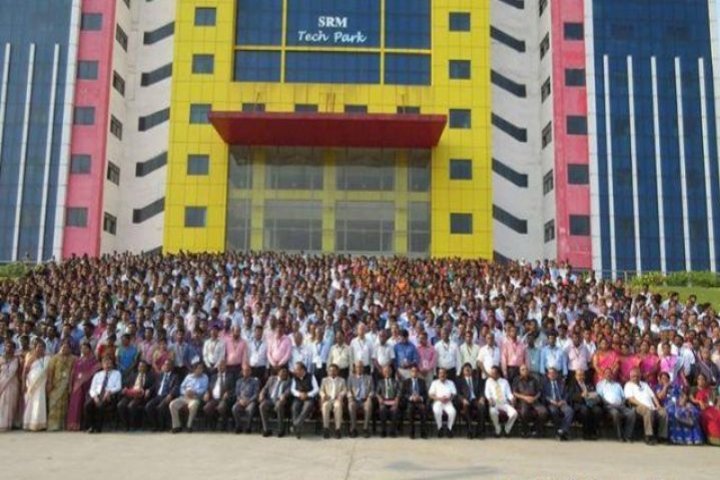

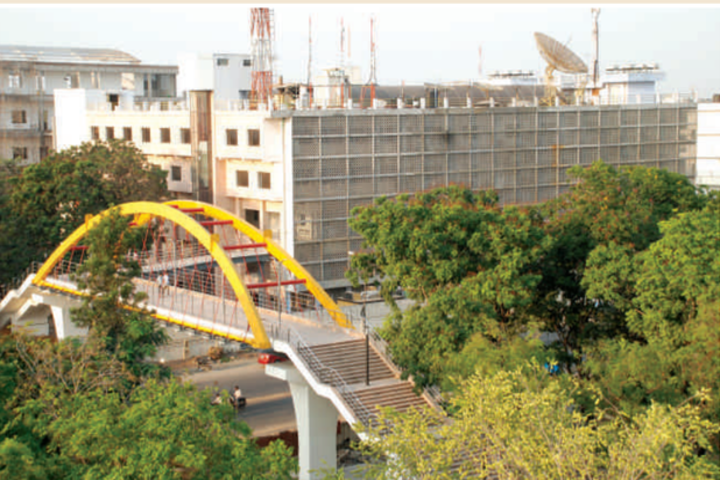
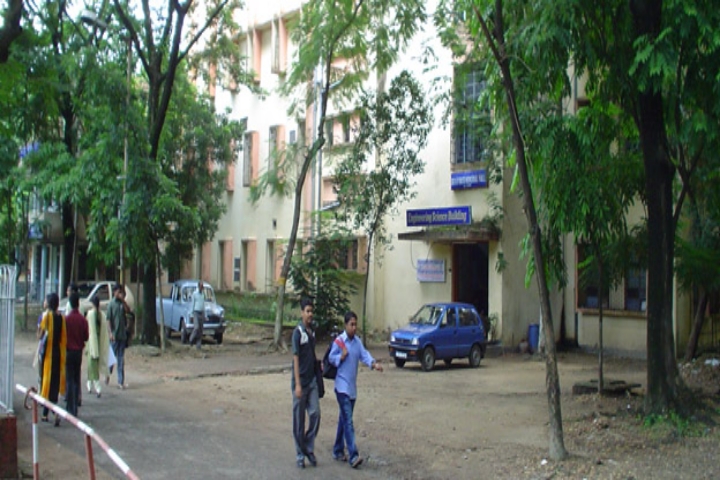

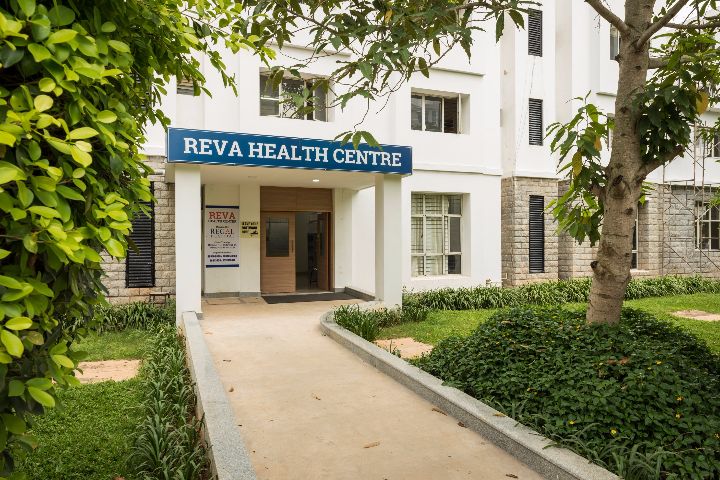
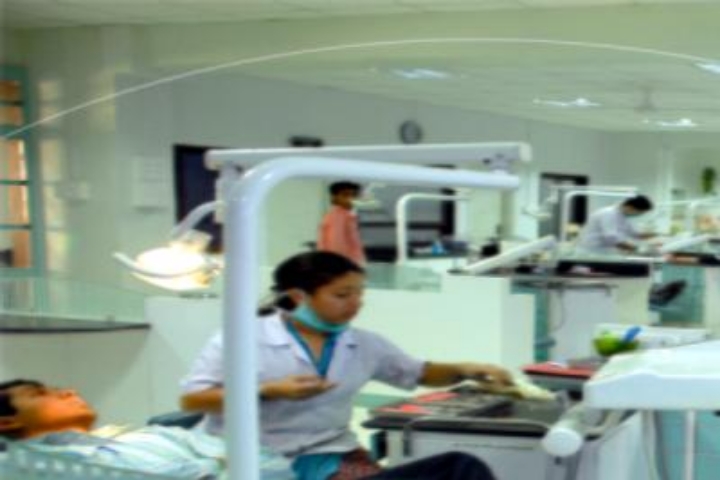

 Answer later
Answer later











